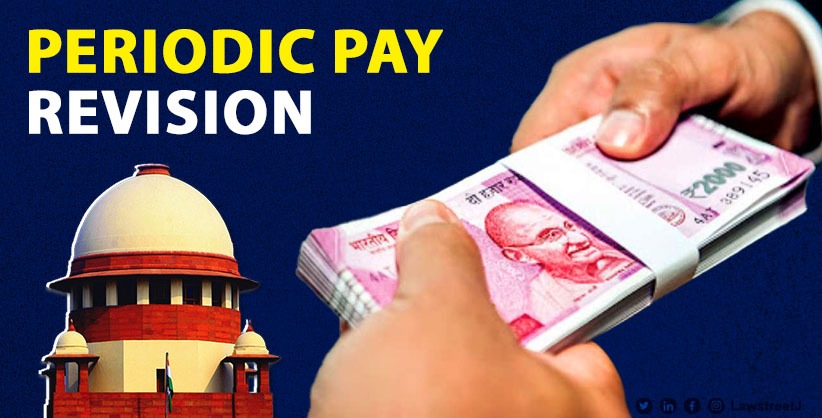NEW DELHI: The Supreme Court on Thursday said each public employer is obligated to make a periodic revision of wages in general interest to keep pace with the increased cost of living and the general inflationary trends.
"State and public employers have an obligation to address as a measure of public interest, the ill-effects of rise in the cost of living, on account of price rise, which results in fall in real wages. This obligation should be discharged on a periodic basis. Yet, there cannot be any straitjacket formula as to when such pay revisions are to be made and to what extent revisions should take place," a bench of Justices Aniruddha Bose and S Ravindra Bhat said.
The court partly allowed an appeal filed by the Maharashtra State Financial Corporation Ex Employees Association and others against discrimination by the state government's decision, denying the benefit of revision of pay scales, as recommended by the Fifth Pay Commission, to the employees of the Maharashtra State Financial Corporation who had retired or died during the period of between January 01, 2006 to March 29, 2010.
It also relied upon Article 43 of the Constitution, which obliged the state to ensure that all workers, industrial or otherwise, are provided with a living wage and assured of a decent standard of living.
What should be the extent of pay revision, are undoubtedly matters falling within the domain of executive policy making, the bench said.
"At the same time, a larger public interest is involved, impelling revision of pay of public officials and employees. Sound public policy considerations appear to have weighed with the Union and state governments, and other public employers, which have carried out pay revision exercises, periodically (usually once a decade, for the past 50 years or so)," the bench pointed out.
The court further said the rationale for such periodic pay revisions is to ensure that the salaries and emoluments that public employees enjoy, should keep pace with the increased cost of living and the general inflationary trends, and ensure it does not adversely impact employees.
"Pay revisions also subserve other objectives, such as enthusing a renewed sense of commitment and loyalty towards public employment. Another important public interest consideration, is that such revisions are meant to deter public servants from the lure of gratification; of supplementing their income by accepting money or other inducements for discharging their functions," the bench added.







